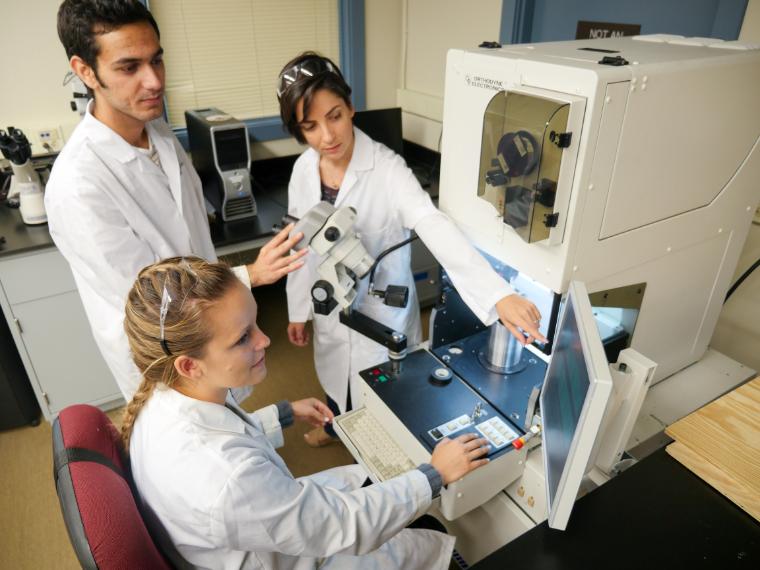Mechanical Engineering Master of Science Program

Mission Statement
The mission of the Mechanical Engineering Department, at the graduate level, is to empower students to play a pivotal role in shaping the future through impactful and transformative careers in mechanical engineering and related fields. We offer a robust foundation in mechanical sciences and cutting-edge research techniques. Guided by Jesuit principles, we aim to educate ethically conscious and innovative problem solvers who can creatively address real-world challenges. Our commitment to pioneering research ensures graduates are well-equipped to make substantial contributions to state-of-the-art knowledge in the field and build strong connections with the local industry in Silicon Valley.
Student Learning Outcomes
Students will be able to
- Apply concepts in mechanical engineering, mathematics, and science to solve fundamental mechanical engineering problems.
- Identify, formulate, and analyze advanced-level problems in a selected emphasis area within the mechanical engineering discipline.
- Understand the ethical and societal impacts of technological innovations and engineering solutions.
The Mechanical Engineering Department is dedicated to delivering up-to-date, high-quality courses across a broad range of disciplines to meet the needs of both part- and full-time graduate students. These courses are concentrated in five emphasis areas:
- Dynamics and Controls
- Design and Manufacturing
- Mechanics and Materials
- Mechatronic Systems Engineering
- Thermofluids and Energy
Educational efforts are channeled to expand the skills of prospective and practicing engineers not only in understanding fundamentals but also in developing competence in analyzing engineering systems. The department offers graduate degrees at the Master's, Engineer's, and Doctorate levels, as well as Certificates.
An M.S. degree requires a minimum 46 units of study with an overall GPA of 3.0 or higher. The student must select one of the five areas of emphasis and develop a program of studies with an advisor. Courses taken to satisfy any particular requirement may be used to simultaneously satisfy additional requirements for which they are appropriate. Master of Science degrees must include the following:
- Engineering Core-Enrichment experience requirement (minimum of 8 units). Students must take a minimum of 4 units from at least two of the three areas:
- Emerging Topics in Engineering
- Engineering and Business/Entrepreneurship
- Engineering and Society
The remaining 4 units can be accumulated by, (a) taking one or more major technical electives, (b) additional classes from the Graduate Core list, (c) cooperative education courses and (d) combining a, b, and c.
- Math requirement: 8 units composed of MECH 200 and 201, or MECH 202, and an approved two-course sequence or equivalent four-unit course in applied math
- Depth Requirement: 8 or more units depending on the chosen emphasis
- Breadth Requirement: 4 units in other emphases outside one’s chosen emphasis. No double dip is allowed.
- At least 28 units from graduate courses in mechanical engineering.
- All emphases offer a culminating experience, which can be pursued by taking MECH 290 (Graduate Research/Project) and/or MECH 299 (Master’s Thesis). Up to 6 units of MECH 290 can be taken and counted toward the 46-unit requirement. Those who write a thesis or publish an article in a peer-reviewed journal can take 6 more units of MECH 299. Some emphases may require the culminating experience.
The student may take any additional graduate courses, as needed, offered by the School of Engineering to meet the minimum 46-unit requirement.